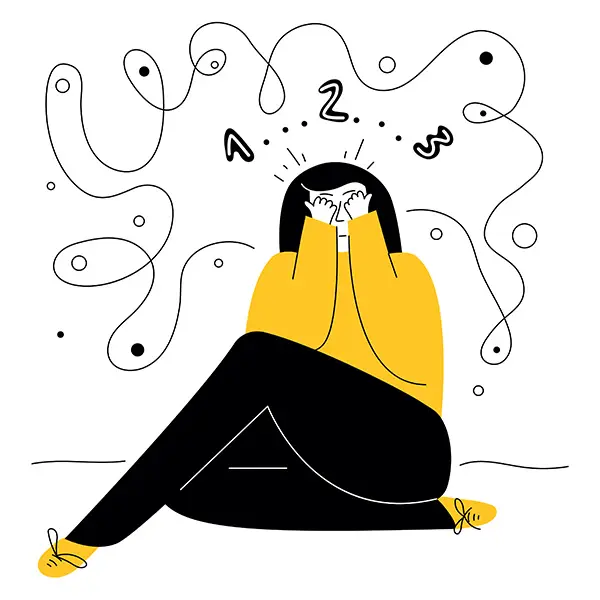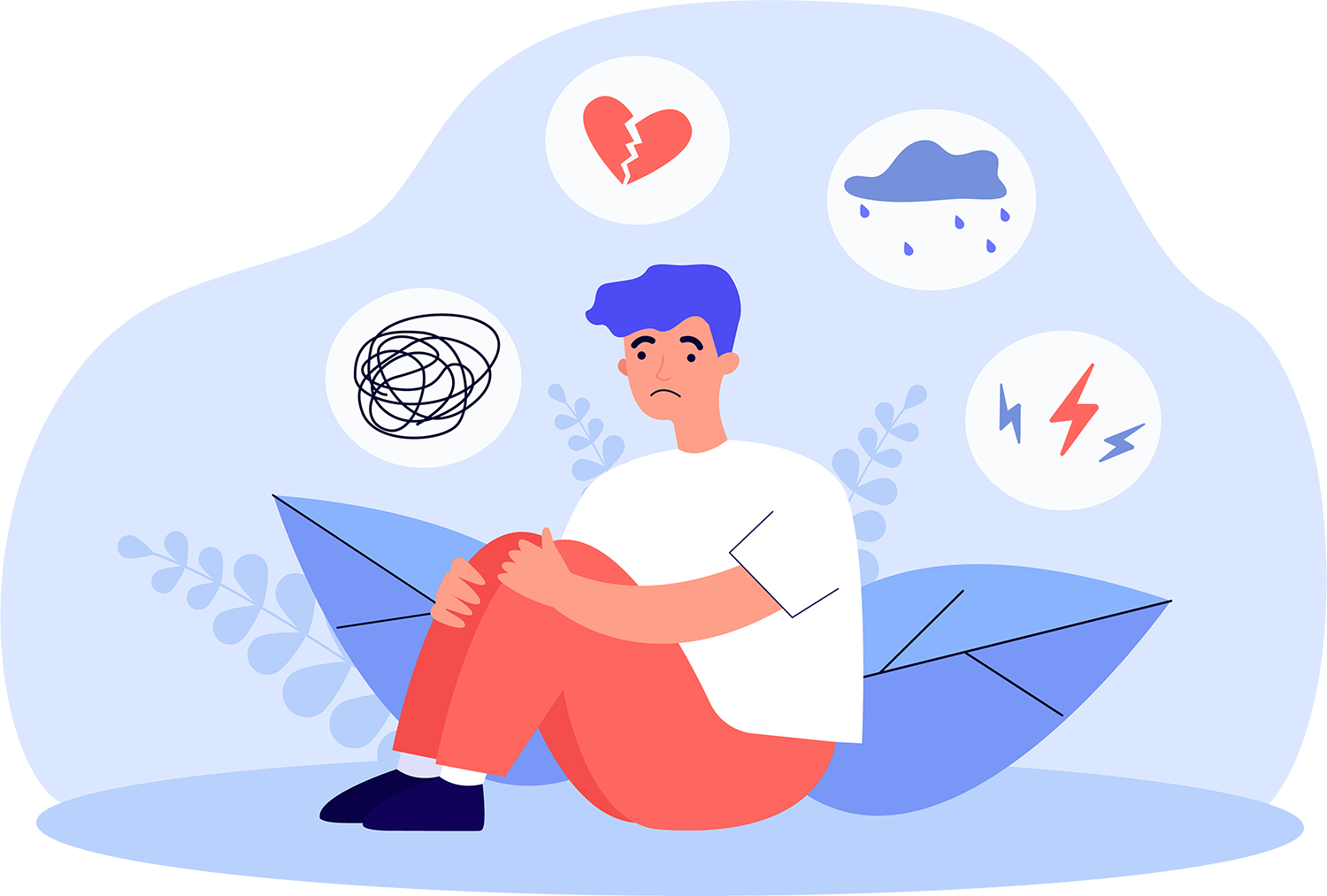
It is not uncommon for people with mental health disorders like depression and anxiety to also have a substance use disorder. If you are taking Wellbutrin (also known as bupropion) for a mental health condition like depression, and are considering treatment for addiction, your doctor might recommend changing to a different medication because of some potential complications.
Eleanor Health provides addiction medication management as part of your addiction treatment program, which will take into account any other medications you might be taking, to better treat your whole self during addiction recovery.
What does it mean to treat the whole individual? At Eleanor Health, we know that addiction is part of a larger, complex system of a person’s health and wellbeing. Treatment needs to address these co-occurring problems, whether it’s addiction with co-occurring depression, hypertension, or other mental health and physiological conditions.
It often includes both addiction therapy as well as mental health treatment. Eleanor Health provides treatment for depression and addiction together, which is more effective than treating either alone, and provides many tools to improve someone’s healing and resiliency.
Get help for depression and addiction now and verify your insurance with Eleanor Health today.
Major depressive disorder (MDD), also referred to as clinical depression, is a significant mental health condition that can affect many areas of a person’s life. It impacts mood and behavior as well as various physical functions, such as appetite and sleep.
MDD is one of the most common mental health conditions in the United States. The National Institute of Mental Health (NIMH) suggests that 8.4% of U.S. adults experienced a major depressive episode in 2020.
Wellbutrin works by inhibiting the reuptake of dopamine, and norepinephrine, the neurotransmitters that cause depression.
If you’re exploring antidepressant options during recovery, you may also want to learn more about Zoloft (sertraline) and how it’s commonly used to treat depression and anxiety.
Wellbutrin – specifically bupropion, which comes in different brands and forms – is an antidepressant drug approved by the U.S Food and Drug Administration (FDA) for the treatment of Major Depressive Disorder (MDD), Seasonal Affective Disorder (SAD), and as an aid for smoking cessation (under the brand name “Zyban”).
This medication works by improving your mood and your sense of well-being. This is achieved by restoring the chemical balance of dopamine and norepinephrine in the brain. Bupropion is also used off-label for the treatment of a variety of health conditions such as:
Bupropion is available in three main forms:
Wellbutrin (bupropion) comes with a black box warning to help alert doctors and patients about the drug’s adverse effects. This is the most serious type of warning from the U.S. Food and Drug Administration (FDA).
Taking this drug may cause you to have changes in behavior such as hostility, agitation, depressed moods, or suicidal thoughts. The potential risk of suicidal thoughts and behavior is higher in children, adolescents, and young adults who consume bupropion. It is vital that you inform your doctor immediately should you experience any of these adverse effects.
In rare instances, bupropion can cause seizures that can be severe and potentially life-threatening. As such, it is not recommended for patients who are prone to seizures or to be consumed with other drugs that lower the seizure threshold. The risk of seizures increases when the doses of bupropion are increased.
Even though bupropion is an effective treatment option for most patients with anxiety disorders, it can also cause anxiety as a side effect in certain patients. Bupropion can also cause severe high blood pressure and periods of mania.

Wellbutrin – more specifically, bupropion – has been studied as an addiction medication for various addictions, and among these, it has FDA approval as a smoking cessation aid. Studies reveal bupropion to be a great aid for smoking cessation as it helps significantly reduce nicotine withdrawal and cravings.
The type of bupropion used for smoking cessation is sold under the brand name of Zyban. It is described as a safe and cost-effective treatment for nicotine addiction. Zyban helps around one in 5 people quit smoking in the U.S each year.
Researchers have found that individuals with co-occurring addictions to opioids and stimulants – like cocaine and amphetamines – may benefit from Wellbutrin. In these cases, bupropion (Wellbutrin) may help prevent negative behaviors and outcomes related to stimulant use.
Outside of recent exploration into OUD with co-occurring stimulant addiction, Wellbutrin is not commonly prescribed to those who are actively taking opioids as part of their medical treatment or for those actively abusing opioids. There are several reasons why these drugs, in combination, can have severe consequences.
Wellbutrin lowers the threshold for seizures, making it a risky choice to pair with other drugs that increase the risk of seizures, like opioids. In addition, these drugs have opposite effects on mood and depression, which can destabilize someone’s mental health in unpredictable ways. Wellbutrin also complicates the overall opioid detox experience and intensity of withdrawal.
Individuals combining alcohol with Wellbutrin (bupropion) to attain a chemical high are at risk of developing an alcohol use disorder as well as an addiction to Wellbutrin, making it incredibly difficult to lead a stable day-to-day life. The physical dependence on alcohol or/and Wellbutrin is a serious problem that can cause adverse, long-term health complications and bring about severe side effects associated with both.
Epileptic seizures are one of the rare but serious side effects of bupropion. The risk of seizure as well as overdose is higher in the following scenarios:
While some patients, after careful consideration, benefit from Wellbutrin as part of their addiction treatment plan, many patients will recover more effectively with an alternative to Wellbutrin. That’s because some medications for opioid use disorder should not be combined with Wellbutrin (for most people), and Wellbutrin doesn’t typically play a role in the treatment of alcohol use disorder, either.
Methadone is most commonly prescribed as an addiction medication and is used as part of a larger opioid treatment program for heroin, morphine, and other opioid addictions. Combining Wellbutrin and Methadone (and opioids in general) will increase the risk of seizures and other severe and adverse side effects. There is less risk at lower doses, and methadone is also used in some chronic pain treatments, so there is sometimes a case to prescribe these together.
Suboxone (buprenorphine/naloxone) and other preparations of buprenorphine are FDA approved for the treatment of opioid abuse. One of the very rare side effects of buprenorphine is seizures. Combining buprenorphine with a medication like Wellbutrin, which lowers the threshold for seizures, is generally not recommended, particularly at higher doses. This is particularly true for those who are already at risk for seizures, are elderly, or are going through withdrawal from drugs or alcohol.
Bupropion may also raise the risk of liver problems. This is also true for the medication naltrexone, which has been cleared by the FDA to treat both opioid use disorder and alcohol use disorder. If you are taking both bupropion and naltrexone, it’s best to avoid or limit drinking because of the potential complications to your liver.
Wellbutrin is a non-habit-forming drug that is considered to have a low risk of addiction and dependence. And it doesn’t produce much of the side effects seen by other antidepressants. However, it can produce a high that is quite similar to that of amphetamines and crack cocaine when the pills are crushed and snorted.
When Wellbutrin is misused, dangerous doses of the drug enter the body and increase the risk of an overdose. Although there is little evidence provided to show fatal overdose, it can trigger severe symptoms such as:
If you or a loved one are struggling with a Wellbutin prescription addiction from misuse, it’s important to find help, because misuse can lead to severe and dangerous withdrawal symptoms, including seizures, severe depression, and suicidal ideation.

Learning more about co-occurring depression and addiction, depression and anxiety medication as well as our addiction medication options can also be a helpful tool in your toolkit if you’re researching medical information for yourself or to support a loved one going through addiction.
Eleanor Health is here to help!
 Why Do People Become Addicted to Alcohol and Drugs?
Why Do People Become Addicted to Alcohol and Drugs?
 How Prescription Medications Can Affect Addiction Recovery
How Prescription Medications Can Affect Addiction Recovery
 Opioids and Depression: Understanding the Link Between Painkillers, Addiction, and Mental Health
Opioids and Depression: Understanding the Link Between Painkillers, Addiction, and Mental Health